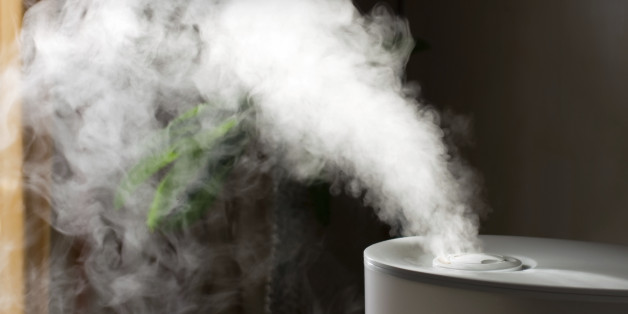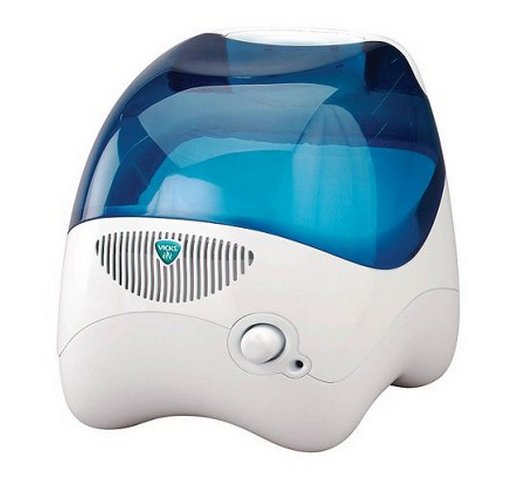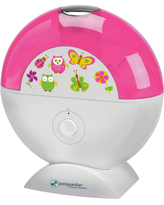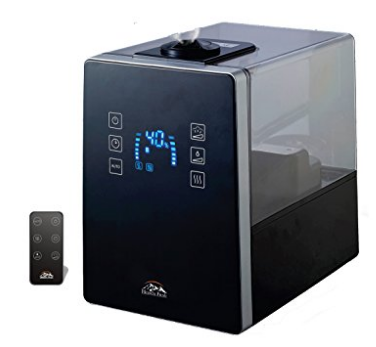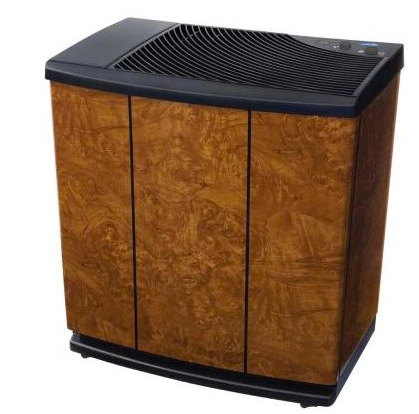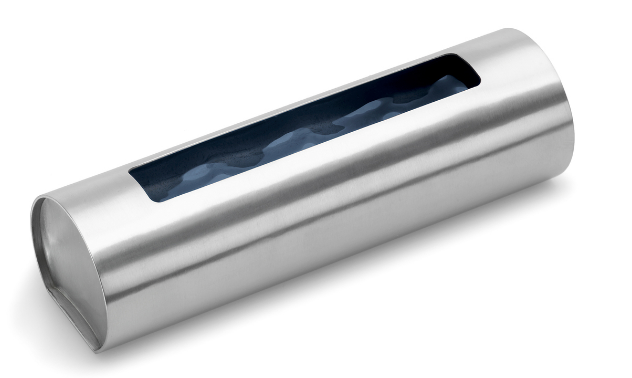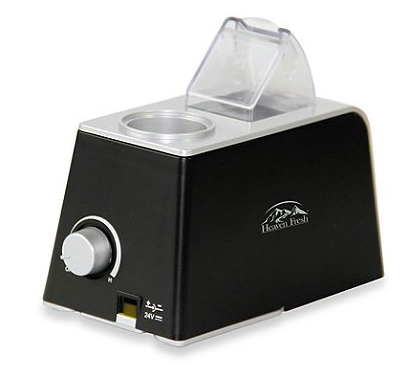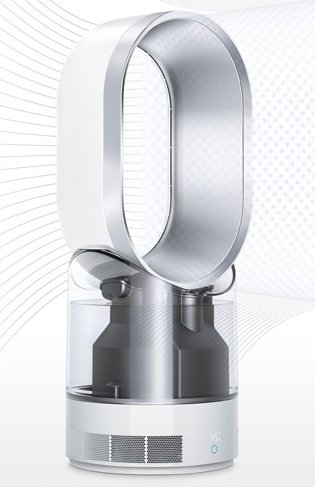Just in case the Internet hasn’t sufficiently informed you, it’s getting colder outside. And as the weather gets cooler and the air drier, you might consider purchasing a humidifier, which can alleviate some cold-weather ailments.
Read on for our guide to the handy device.
Humidity refers to the amount of atmospheric water vapor, and humidifiers are devices that increase it. Indoor humidity levels should ideally remain between 30 and 50 percent, according to MayoClinic.org.
Levels can be monitored with a device called a hygrometer, and many humidifiers have them built in.
Humidifiers work to put moisture back in the air, but what exactly does that mean, how does it help your chapped lips and is it crucial to own one?
Setting up a humidifier is the best bet for improving indoor air quality and your breathing and reduce lung problems.
When the air is dry, your respiratory system just isn’t happy. Even if you have no medical problems at all, you can suffer. Your skin and nasal passages get dry – all the way down to your lungs. You can wake up with a dry mouth and start coughing for no reason.
Static in your hair or the sparks that fly when you touch someone or something in winter are sure signs the air in your house is too dry.
The Environmental Protection Agency recommends keeping your home’s humidity level between 30 percent and 50 percent. The agency also suggests using filtered water in humidifiers, if possible, to avoid the minerals and micro-organisms unfiltered water might contain.
So, What Exactly Does A Humidifier Do?
There’s more than one type of humidifier, but at the most basic level, the device emits water vapor into a space to increase the level of humidity. When used correctly, humidifiers can help to alleviate dry skin, chapped lips, nose bleeds and other pesky cold-weather conditions. It can even help to reduce some snoring!
Using a humidifier can relieve:
- chronic runny nose
- hay fever symptoms
- nose bleeds
- asthma and allergy flare-ups
- sinus congestion
- dry throat
Humidifiers are generally more necessary during the winter, when atmospheric humidity levels are low and heating systems, which dry air out, are in use.
Humidifiers have several other benefits.
- Remedying Dry Skin in Winter. Humidifiers treat dry skin and chapped lips during winter months. The indoor humidity levels of furnace-heated air can drop to 10 percent or less. Humidifiers add much-needed moisture to the air and to skin. Use several small units near beds in the house and keep doors closed in rooms where a humidifier is in use.
- Soothing Dry Skin Conditions. Just as humidifiers treat dry winter skin, it soothes skin dryness and itchiness. Low humidity levels exacerbate symptoms of eczema, notes the American Academy of Dermatology on its Eczema.Net website. Psoriasis, thyroid disorders, topical medications for acne, and cosmetic products can also cause dry skin that can be eased with a humidifier.
- Treating Cold, Flu and Allergy Symptoms
Humidifiers soothe dryness, irritation or itchiness in the nose, nasal passages, sinuses, mouth, throat and eyes. They help prevent nose bleeds in those prone to them when their nose is dried out, notes MayoClinic.org. Hence, humidifiers benefit people with a cold, flu or allergies.They even serve as a preventative measure, limiting or eliminating viruses and bacteria that thrive in dry air, explains the Aerias Indoor Air Quality Resource Center. However, over use of humidifiers can lead to growth of pathogens and allergens. - Easing Asthma
Children and adults with asthma often find humidifiers help their breathing, especially when the condition is compounded by a respiratory infection, says MayoClinic.org. Those with asthma should check with their doctor before using a humidifier, though. Humidifiers must be kept clean to keep the air free of asthma irritants. Humidity levels kept too high can also make things worse, prompting the growth of mold or mildew. - Other Benefits
Besides health benefits to people, humidifiers offer benefits to your home, as Aerias points out. They reduce static electricity in the air. In addition, they can help preserve a room's appearance by slowing the peeling of wallpaper and preventing cracks in paint and furniture.
Types Of Humidifiers
Regardless of what kind of humidifier you choose, she says, everyone should have some type of humidifier in their home.
- Central humidifier: This humidifier is built directly into your home’s heating and air conditioning system and can control the humidity level throughout your entire house. It’s the most expensive option but it’s the most effective choice.
- Evaporators: This type of humidifier blows moisture through a moistened filter. Fans push the humidity out into the room.
- Impeller humidifier: This option creates a cool mist that is pushed out into the room by disks that rotate at high speed.
- Steam vaporizer: This electric-powered option heats water and cools it off before pushing water vapor out into the room. Vaporizers can be moved from room to room.
- Ultrasonic humidifier: Like an impeller humidifier, this humidifier spreads a cool mist through the room via ultrasonic vibration.
Are There Any Downsides To Humidifiers?
Humidifiers do more good than bad, as long as you clean them properly. Without regular care, a dirty humidifier could promote bacteria and mold growth.
You also want to ensure that your humidifier does not make your home too humid. According to the Environmental Protection Agency, ideal indoor humidity levels can vary but “the ideal levels of humidity for your living space will be less than 60% in the summer and between 25 – 40 % in the winter.” You can monitor the indoor humidity of your home by checking this website, and looking for an increase in condensation, mold or insects in your home.
What Kind Of Humidifier Do I Need?
There are a few different types of humidifiers currently on the market that work best for certain homes or situations. From travel humidifiers to devices that target eczema and psoriasis, we’ve rounded up the best of the best.
Take a look!
1. If you want to relieve congestion…
For a humidifier that’s easy on the eyes and the wallet, try Vicks Cool Moisture Humidifier. The device can run for up to 18 hours at a time. (Available in Canada)
2. If your child needs a humidifier…
The PureGuardian 14-Hour Ultrasonic Humidifier comes with a nightlight and in a range of fun colors for kids. Ultra-quiet to ensure a good night’s sleep, this humidifier is also portable. (Available in Canada)
3. If you don’t like to get out of bed…
Though it’s a little on the pricey side, the Heaven Fresh Digital Ultrasonic Humidifier comes with one important accessory – a remote! The humidifier can also emit both cool and warm mist over its 25-hour lifespan before it needs a refill. (Available in Canada)
4. If you want to humidify your whole house…
If you want a humidifier that doesn’t look like one, go for the Essick Console Humidifier. This device works for 2500 square feet of coverage and can hold up to 5.4 gallons of water.(Available in Canada)
5. If you’re looking for a stylish option…
You need to go with the Humydo Rectangular Humidifier. The humidifier’s sleek exterior is gorgeous, and it doesn’t need electricity to emit mist. Set this next to your fireplace and watch it go to work.
6. If you want a travel humidifier…
Called the Heaven Fresh Travel Ultrasonic Humidifier, this super convenient travel humidifier only needs one thing to work — a water bottle. Use it for areas that are up to 100 square feet. (Available in Canada)
7. If you’re looking for psoriasis relief…
Using Dyson’s Ultraviolet Cleanse technology, this Dyson White Silver Humidifier emits mist that claims to be 99.9% bacteria free andhas accurate climate control to prevent over/under humidification. (Available in Canada)
8. Ultrasonic Table Top (US) – I personally use this one (Available in Canada) both at my home and office. It does not require changing filters and no breeding ground for mold or mildew.Ultra-quiet for sleeping children.
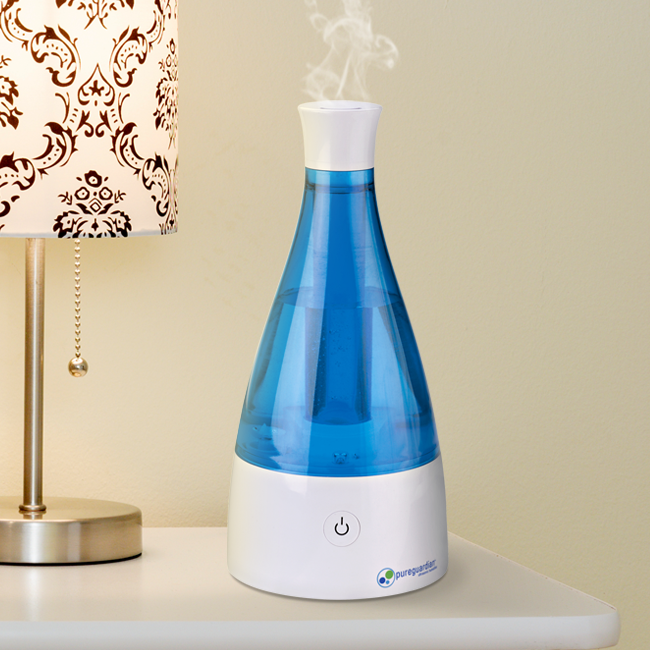

How Do I Clean A Humidifier?
From white vinegar and tea tree oil to using distilled water, there are many hacks to clean your humidifier. The important thing is that you do clean it – regularly and keep an eye on the following:
Refresh the water. Room humidifiers use a gallon of water daily, and you must change the water to avoid any mold or bacteria that could grow in standing water. Wash any buckets or filter systems every two to three days, as well.
Change your filter. If you have a central humidifier, change the filter monthly.
There’s no magic to a humidifier , but, if you use one, you will feel better.
https://www.epa.gov/indoor-air-quality-iaq/indoor-air-facts-no-8-use-and-care-home-humidifiers
